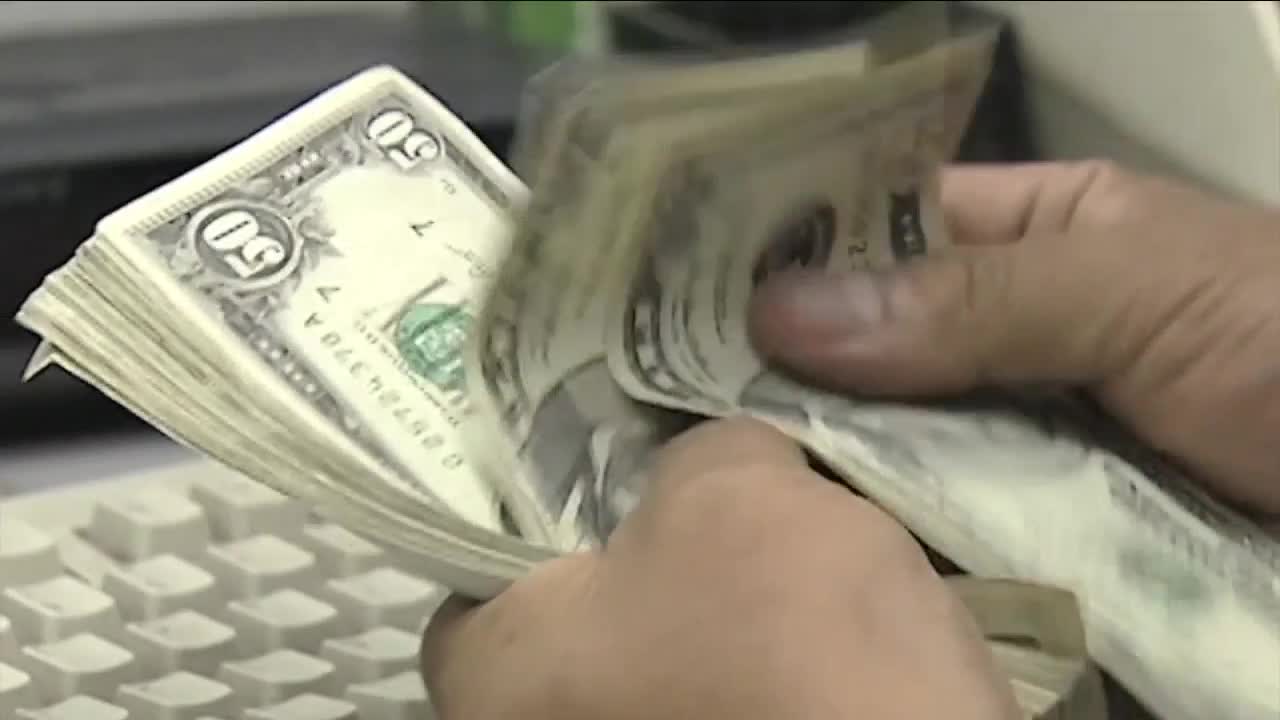DENVER — Colorado is waiting on a decision from the U.S. Department of Labor on how to move forward with its extended unemployment benefits program.
The State Extended Benefits program is paid for by the federal government through the CARES Act and provides additional financial relief for people experiencing long-term unemployment during the pandemic.
After the employee uses up all of their state unemployment benefits (about 26 weeks worth in total), under the extended benefits program, they are eligible to receive an additional 13 weeks of help from the federal government.
However, Colorado was only able to take advantage of that federal aid so long as the Insured Unemployment Rate (IUR) in the state stayed above 5%.
In early November, the state’s 13-week IUR total dipped to 4.9%. As a result, some 16,000 people were cut off from federal help during the first week of December.
Nearly 60,000 other Coloradans who would soon be receiving that long-term assistance were also affected.
“A lot of these people may have gone back to work during the summer months or the fall months, but because of the new (COVID) restrictions they’re now continuing or reapplying for unemployment,” said Joe Barela, the executive director of the Colorado Department of Labor and Employment (CDLE).
Denver7 spoke with one man who was relying on the federal money and who saw his benefits abruptly shut off.
Dana asked Denver7 to only use his first name since he is actively seeking work and embarrassed about his financial situation. He was laid off from a sales job in mid-April and has been searching for work ever since.
Last week, Dana found out he no longer had access to the federal aid but didn’t know why.
“What was a little concerning about that is there was no information about that, there was no warning, there was nothing on (CDLE’s) website,” he said. “I think a lot of people were probably caught by surprise.”
He tried calling CDLE but wasn’t able to schedule an appointment for several weeks. Finally, in a last-ditch attempt to get answers, Dana reached out to the governor’s office and was able to get connected with help.
He’s now signed up for Pandemic Emergency Unemployment Compensation (PEUC) and will receive money through the end of the month. Dana doesn’t blame CDLE; in fact, he says the department is doing a good job with the resources they have and the number of people needing help.
In an effort to allow the state to continue to access these funds, last week, the Colorado state legislature added a last-minute amendment to Senate Bill 2.
The amendment adds a new trigger and changes the way that Colorado calculates its unemployed rate. Instead of only counting the people receiving regular unemployment benefits through the state, the amendment would allow CDLE to include those who used up their state benefits and are now relying on federal aid money.
This combined number is called the Total Unemployment Rate. Colorado is one of numerous states fighting to keep their federal benefits but reconfiguring their unemployment calculations.
“There are several states that are in the process of looking at how they can continue to get unemployment benefits to people who continue to be on benefits at no fault really of their own, it’s just that the health care crisis has really impacted certain sectors of the economy,” Barela said.
If the people relying on federal relief in Colorado had been included, Colorado would not have dipped below 5%.
The CDLE is now waiting on federal guidance for whether it can retroactively pay out those federal benefits to the tens of thousands of people who lost them at the beginning of this month.
“We are doing everything we can to make sure we can look at options to take advantage of those resources for as long as possible,” Barela said.
Beyond that, once Colorado lost its access to these federal benefits, there is a 13-week waiting period to reapply. The state is also seeking guidance about whether it can get around that waiting period.
The U.S. Department of Labor tells Denver7 they are still in the process of reviewing Colorado’s request.
But there’s more bad news: regardless of whether Colorado is allowed to retroactively pay out those benefits and skip that waiting period, the CARES Act benefits expire at the end of the month.
“All benefits, regardless of whether you’re within one week of state extended benefits or you’re in the 12th week or 13th week, they will come to an end at the end of this month. Without any additional federal stimulus coming in, those individuals will not be eligible for any type of unemployment insurance compensation,” Barela said.
Barela and thousands of Coloradans are hoping Congress will be able to pass another round of coronavirus relief before next year.



